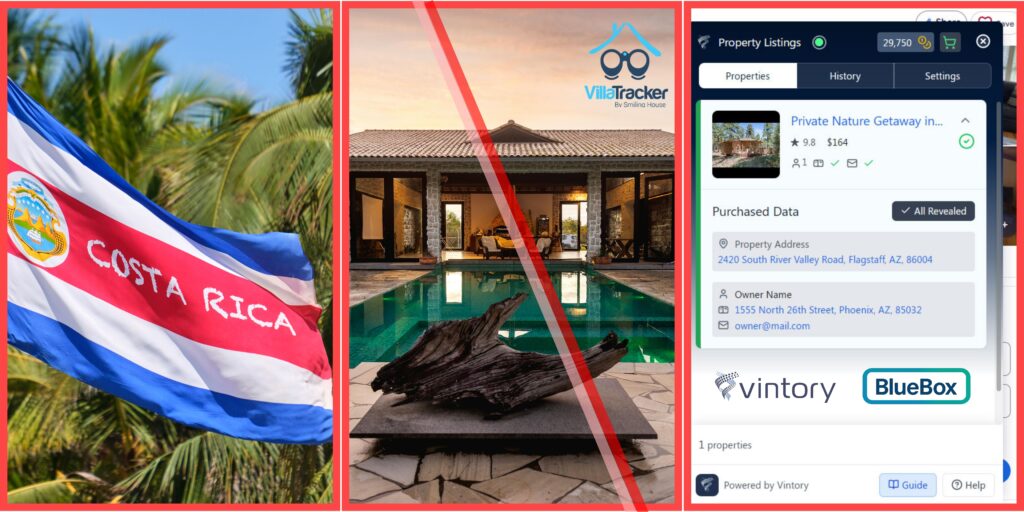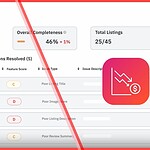Costa Rica to Tax Rental Income Generated Through Online Booking Platforms with New 12.75% Rule
- Starting at the end of 2026, Costa Rica’s General Directorate of Taxation (DGT) will enforce a 12.75% tax on rental income generated through online travel agencies (OTAs).
- By the end of 2026, Costa Rican authorities will begin receiving host-level data, including names, income earned, and property details from Airbnb, Booking.com, and others through a global OECD tax transparency agreement.
- Officials have urged all hosts to register early as taxpayers, warning that failing to do so could lead to fines once enforcement kicks in.
- The Finance Ministry has framed the move as a matter of “tax justice,” aiming for fairness across lodging types.
- Notably, Airbnb has already applied a 13% VAT on service fees in Costa Rica since 2022.
- This new rule builds on Costa Rica’s broader digital tax framework launched in 2020, which also covers services like streaming and ride-sharing platforms.
Snigdha’s Views:
- We’ve seen this pattern elsewhere: tax enforcement comes first, followed by zoning rules or permit systems, like in Portugal, NYC.
- Unlike STR platforms, hotels aren’t required to hand over user-level data, creating an uneven playing field.
- For many small hosts in Costa Rica, STR income is seasonal or supplemental. With this kind of enforcement, even casual operators will need to go through formal registration, accounting, which might push some to exit the market entirely.
- If you manage STRs in Costa Rica, start by educating owners about the upcoming tax, offering help with tax registration.
- It’s also crucial to revisit your pricing models, payout structures, and owner contracts to ensure everyone is aligned before the 12.75% tax starts cutting into income.
Villa Tracker Goes Live for Travel Pros, Books $800,000 Ultra-Luxury Stays
- Villa Tracker has officially opened its platform to travel agents, designers, concierge teams, and event planners, following a soft launch for property managers in August 2024.
- The goal is to connect ultra-luxury short-term rentals with vetted travel professionals, creating a curated, high-touch booking channel tailored to the needs of high-end guests and industry insiders.
- The platform is positioning itself as a centralized tool for booking high-end villas, with some listings reportedly priced at $100,000 per week and booked for multi-week stays, reaching $800,000 per reservation.
- According to the company, these bookings are not isolated cases, but part of a growing trend toward longer, high-value stays in luxury rental properties.
- The platform is now live and accepting signups globally, aiming to serve the top tier of the STR and luxury travel industries.
About Villa Tracker:
Villa Tracker is a specialized platform dedicated to connecting luxury vacation rentals with a diverse network of travel professionals, including event planners, corporate retreat organizers, media production companies, and other high-end clients.
Villa Tracker was founded by Moriya Rockman, a luxury travel entrepreneur and co-founder of Smiling House, in response to the demand for private, high-end stays during the pandemic.
Snigdha’s Views:
- Villa Tracker’s $800,000+ bookings highlight a clear split in travel behavior: while many guests are watching their budgets, ultra-wealthy clients continue to book top-tier villas when expectations are met.
- For professional property managers, the takeaway is clear: the luxury segment plays by different rules.
- These high-value bookings are built on trust, reputation, and relationships, not just platform visibility. Villa Tracker is leaning into this by opening up to travel agents, concierges, and event planners.
- Unlike Airbnb or Vrbo, Villa Tracker isn’t chasing consumer traffic. Instead, it’s building a B2B infrastructure, curated listings, vetted agents, and white-glove service to power luxury bookings behind the scenes.
- This approach depends on maintaining quality over quantity, both in its property selection and in who gets to book.
- This push toward B2B infrastructure also builds on Villa Tracker’s earlier integration with Guesty, announced last year.
Vintory Launches Chrome Extension to Reveal Owner Contact Info on Airbnb, Vrbo, and Zillow
- Vintory has released BlueBox, a Chrome extension that lets users instantly access property owner contact details, like names, email addresses, and mailing addresses, while browsing listings on Airbnb, Vrbo, or Zillow.
- BlueBox is designed for property managers, real estate investors, and business development teams seeking a faster way to identify and reach potential clients.
- The extension overlays owner information directly on listing pages, removing the need to switch tools or run separate searches.
- Vintory, which has traditionally focused on managed lead-generation services, is now also offering this new self-serve tool that puts its property data directly into the hands of users.
- The extension overlays information right on the listing pages, allowing users to view owner data without switching tools or running separate searches.
- BlueBox offers three one-time pricing tiers. The Basic plan is $99 for 2,500 credits, Core is $249 for 10,000 credits, and Advanced is $495 for 25,000 credits. Each owner reveals costs 125 credits.
About Vintory:
Vintory helps vacation rental managers grow by adding more properties. It uses multi-source data to generate homeowner leads and supports outreach through marketing channels like direct mail and social media. Its CRM and automation platform streamlines lead management, sales, and marketing.
Snigdha’s Views:
- One of the hardest problems for property managers is finding and contacting homeowners, especially in competitive markets where inventory is tight.
- Most PMs don’t have time or tools for deep research, and outsourcing lead generation can be expensive, slow, or opaque.
- BlueBox might help here by surfacing owner contact details directly on platforms.
- For smaller operators and growing PMs, this could make it easier to identify the right properties and reach out faster, on their own terms.
- After getting the contacts, conversion depends on how strategically PMs use them, with better messaging, more personalization, and real value in the follow-up.
- D. Brooke Pfautz, Founder and CEO of Vintory and Comparent, also recently launched Comparent’s new Software Marketplace, signaling the team’s continued push to build convenience-focused tools for property managers.
Snigdha Parghan is a Content Marketer at RSU by PriceLabs, where she creates articles, manages daily social media, and repurposes news and analysis into podcasts and video content for short-term rental professionals. With a focus on technology, operations, and marketing, Snigdha helps property managers stay informed and adapt to industry shifts.








